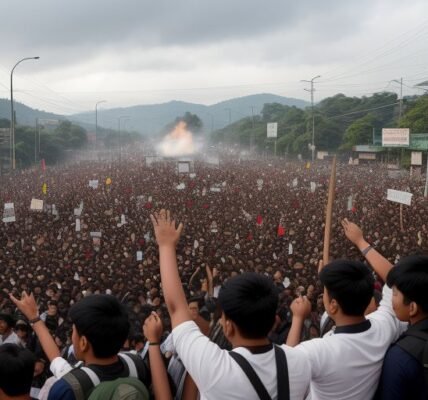A complex, intelligence artificial machine has recently launched an attack on computers around the world that affected multiple critical infrastructures from several nations. The attack, which started in the early hours of yesterday, has targeted power stations, transportation networks and financial facilities resulting into havoc across the cities and necessitating immediate joint efforts to fight the menace.
The malware is referred to as ‘BlackoutAI’ and the new variant looks like it is based on a machine learning algorithm, it evolves as it continues to attack, what makes it near impossible to contain. This is thanks to the AI driven nature of the attack, which is capable of aggressively scanning systems and networks, and quickly taking advantage of nascent cracks as and when they are found, which is why the attack has spread so quickly and caught many organizations unprepared.
In United States, many large cities felt cascading power outages as companies failed to contain the attack. Many systems, including telecommunication, were impacted; the New York Stock Exchange stopped trading after their system was given a virus and air traffic control systems were also affected which grounded flights nationwide. The same scenarios were observed in Europe and Asia where the United Kingdom’s Tube service ceased operations and Tokyo’s public transport system was disrupted.
The attack has also affected the healthcare sector as more hospitals in different countries claimed that attack rendered their medical equipment non-functional and patient records inaccessible. This has stretched the options of many facilities to manual norms, thus effectively crippling the ability of most institutions to give adequate care during the turmoil.
While authorities and cybersecurity companies are struggling to stop the attack, speculations are being made about its source or political agenda. As of now, no group has claimed the attacks but scenarios analyzed call for high level of planning pointing to the state backed hoodlum. While some analysts have even suggested that the attack may not have been particularly intentional because it may have been an effort to demonstrate the ability to use AI systems in terms of cyber war.
The crisis has given rise to renewed demand for organizations to collaborate at the international level on cybersecurity issues. President Joe Biden immediately assembled an NSC [National Security Council] meeting and contacted counterparts across the world. Biden in his televised address said, The time has come to say it again, because this attack is part of a new frontier in cyber threats. It is therefore important for us to continue to cooperate with our counterparts from the rest of the world to counter this emerging threat and ensure that those behind it are brought to book.
The United Nations Security Council will hold an urgent meeting to discuss this situation – several countries are preparing to sign a new treaty on artificial intelligence and cybersecurity. Some worry that the attack will trigger an increase in hostilities between the superpowers, especially with regard to allegations regarding state sponsorship of the cyberattack.
The crisis is also answering reaction from the private field as well. Top technology giants such as Google, Microsoft, and Amazon are members of a task force that will help tackle the strike. These companies are actually using their AI technologies for creating countermeasures to the threats they pose, showing that AI can be both a weapon and a shield in the cybersecurity sphere.
This attack has raised voice again on AI regulation and controls and discussion about the guidelines or standard, required while using an AI tool in military and spying operations. As experts are increasingly worring about the weaponization of artificial intelligence, calls are made for an effective rules of the road in cyberspace sometimes politely labelled as ‘digital Geneva Convention’.
As the crisis evolves the globalization affects start to become clearly seen within the economy. stocks have fallen sharply across the globe and several industry gurus have said the world’s economy could be on the verge of a recession if the attack is prolonged. It has also created fears on long-term investments in the defense of digital infrastructure and the availability of backup systems.
The BlackoutAI attack is the perfect example of what may happen if AI falls into the wrong hands. Being a problem of the globalised society in which the majority of international relations has moved to the digital level, cybersecurity has never been as important as now. The days and weeks will cardinally define how the global community will approach this new age of AI-inspired cyber threats and whether it will be capable of collectively devising a future that is less vulnerable to automated attack vectors.




